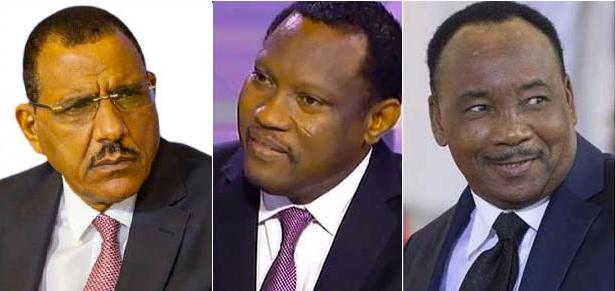
An even bigger problem for France and its Western allies could conceivably be as Russia moves in on Mali.
The prospect of Russian intervention in the Sahel was first raised in October 2016 (See France, the US, Germany, and Russia stake claims in western Sahara) when Deputy Foreign Minister Mikhail Bogdanov — President Vladimir Putin’s special representative for the Middle East and Africa — led a high-level delegation to Bamako. Bogdanov said that Russia was ready to help Mali fight against terrorism and to ensure its economic development, and that it was for Malians to say what assistance Russia could give them. President Putin was reportedly prepared to provide military equipment and training to rehabilitate the Malian army.
In the immediate wake of Mali’s awareness of the G5S funding shortfall, Mali’s Defence Minister, Tiéna Coulibaly, flew to Moscow in August 2017. On his return, he said that Russia was a ‘great champion in the fight against terrorism’ and that he hoped that it would ‘participate in strengthening Mali’s armed forces, get more involved in the Sahel and do more in the fight against terrorism in Mali and the Sahel’.
Russia’s involvement in Mali is not new. It goes back to at least the beginning of 2016, when an organisation called the Groupe des Patriotes du Mali (GPM or Mali Patriots Group) — which we believe may have been founded in Ségou — presented a petition to the Russian Ambassador in Bamako. On 22 September 2016, shortly before Bogdanov’s visit, it presented a second petition to the Russian Ambassador containing 2,417,313 signatures. Thousands of Malians, from Ségou and the Kati district of Bamako, accompanied the presentation. The petition asked the Russian authorities to help Mali, which it said was ‘being plunged into darkness and torn apart by foreign forces’. Banners paraded at the presentation read: ‘Mali-Russia Cooperation, Petition for Russia’s aid to the Malian army, long live Mali to Russia’; ‘We want the help of Russia’; ‘Putin is the saviour’; ‘The people of Mali are calling for the revitalisation of Mali-Russia cooperation’; ‘The Russian nation comes to help the Malian nation’; and ‘Russia is the hope of the world’.
On 12 January 2017, the GPM presented a third petition to the Russian Embassy, with the number of signatures requesting Russian intervention in Mali up to 6,684,329. The GPM delegation was led by its president, Fodé Sidibé. On that occasion, the embassy’s first counsellor mentioned the possibility of President Putin visiting Mali, suggesting also that a Malian government delegation should go to Russia.
The latter was presumably Tiéna Coulibaly’s visit this August. After his return the GPM told the international media on 30 August that it was intending to increase the number of signatures requesting Russian intervention in Mali to eight million. If genuine, this would be an extraordinary number because it represents 44% of the country’s total population of 18 million and well over half its adult population. The petition requesting Russia moves of military support comes in the context of the growing insecurity in northern and central Mali. The GPM said that it believed that the prevailing insecurity would persist as long as the Malian army was poorly trained and equipped with inadequate equipment.
We obviously do not know how much assistance, encouragement, or, perhaps more appropriately ‘grooming’, Russia has been giving the GPM. It is, however, a major setback for the EU whose EU Training Mission to Military (EUTM) has been the subject of almost constant criticism from almost all sides since its establishment in February 2013.
The EU’s current concern is that — in addition to the Sahel’s already chronic crisis of underdevelopment, insecurity, and political instability — as Russia moves into the region there is a very real possibility of a Russian military presence. If it materialises, it is likely to antagonise the jihadists and reinforce their critical stance towards the Bamako government. It could also become a catalyst for increased NATO-Russian tension.



